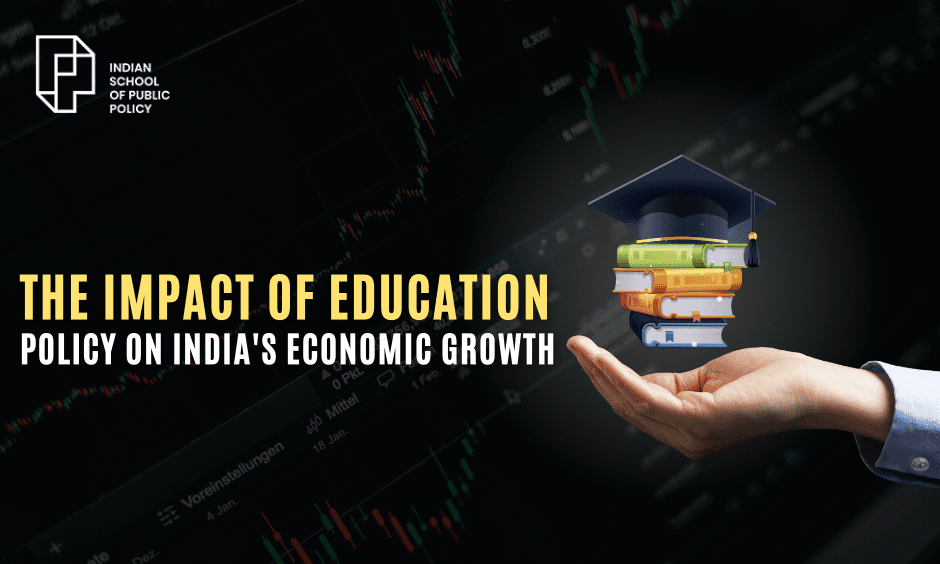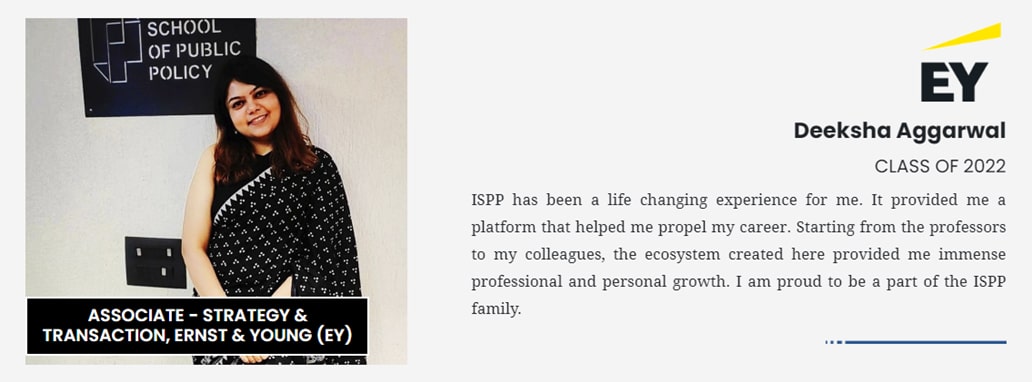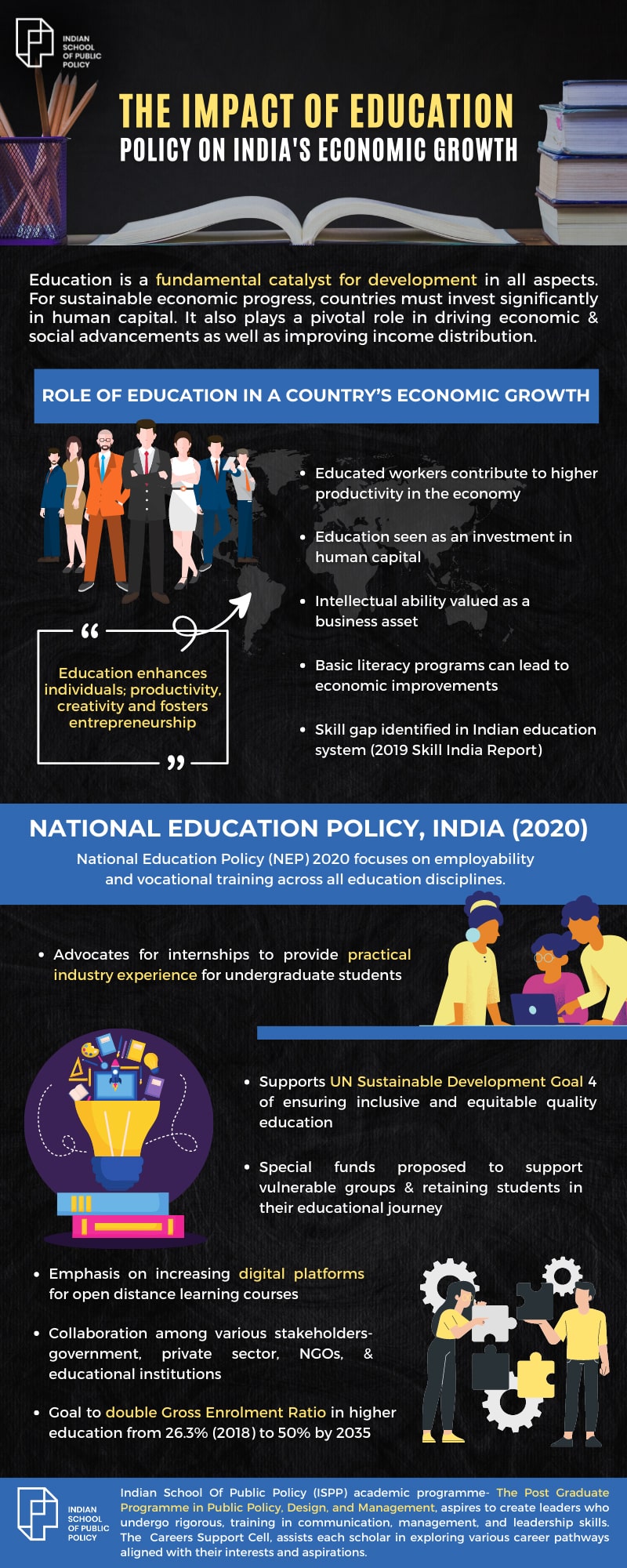
The Impact of Education Policy on India’s Economic Growth

Education is a fundamental catalyst for development in all aspects. For sustainable economic progress, countries must invest significantly in human capital. Education enhances individuals’ productivity, creativity and fosters entrepreneurship and technological advancements. It also plays a pivotal role in driving economic and social advancements as well as improving income distribution.
What Is The Role Of Education In A Country’s Economic Growth?
There is a growing movement to enhance the basic education of the population, fueled by the belief that everyone has the right to education. Countries worldwide are increasingly prioritising the development of education systems that can equip individuals with the skills needed in emerging industries, particularly in science and technology.
The productivity of a country’s economy is closely linked to the proportion of educated workers, as they are better equipped to perform tasks requiring literacy and critical thinking. However, pursuing a higher level of education also comes with its costs. A country doesn’t have to establish an extensive network of colleges and universities to reap the benefits of education; even basic literacy programmes can contribute to economic improvements.
In the business realm, intellectual ability is considered an asset. This asset can be leveraged to develop and sell products and services. The more skilled and knowledgeable employees a firm employs, the greater its production potential. Economies that recognise education as an asset are often referred to as knowledge-based economies. Countries prioritising widespread access to education and ensuring that their population completes school, tend to experience faster economic growth than countries with a lower-educated workforce. Recognising this correlation, many nations allocate funding to enhance primary and secondary education to boost economic performance. In this context, education is viewed as an investment in human capital, akin to investing in improved equipment or infrastructure.
According to the 2019 Skill India Report, a significant percentage of Indian graduates were employable, however, there existed a wide gap between industry requirements and the education system, due to the previous education policy that focussed primarily on rote learning rather than practical skills.
How Does The National Education Policy (NEP) of 2020 Aim To Contribute To India’s Economic Growth?
Given the evolving global work environment, specialising in a single field may no longer suffice, future workers will need diverse knowledge and skill sets. The National Education Policy (NEP) of 2020 has taken a practical and progressive approach to address employability and vocational training across all education disciplines. The policy advocates for internships in both private and public sectors for undergraduate students, providing them with valuable industry experience and aligning education with employment.
This reformist approach is a significant stride towards fostering synergy between education and jobs, making them better suited to each other’s requirements. By offering internships, the NEP 2020 aims to equip graduates with the practical skills and experience needed to thrive professionally.
The National Education Policy of 2020 aims to support India in achieving its UN Sustainable Development Goal 4, which focuses on ensuring inclusive and equitable quality education. This policy involves collaboration among various stakeholders, including the central government, state governments, private sector, NGOs, and educational institutions, to realise the vision of universal education. The policy also proposes increasing public expenditure on education to 6% of the GDP.
While the Right to Education Act has been successful in ensuring almost universal enrollment in primary schools, retaining students throughout their educational journey remains a challenge. The Gross Enrolment Ratio tends to decline as students progress to higher grades, particularly affecting vulnerable groups such as women, backward classes, low-income households, individuals in remote areas, and people with disabilities. To address this issue, the policy emphasises the establishment of special funds to support these groups.
It sets a goal of doubling the Gross Enrolment Ratio in higher education institutions from 26.3% (2018) to 50% by 2035. To enhance accessibility, the policy envisions increasing digital platforms that provide open distance learning courses.
The New Education Policy does indeed acknowledge the fact that India has an enormous working population under 35, and intends to improve the current education system ensuring the intellectual development of the youth.
This brings us to – Where do you master the art of policy-making?.
The Indian School Of Public Policy
Established in 2018 under the guidance of the esteemed Centre for Civil Society (CCS), India’s premier public policy think tank, the Indian School of Public Policy (ISPP) is dedicated to cultivating a new generation of policy leaders in India. With a distinguished council comprising senior academicians, policy experts, administrators, and philanthropists, ISPP strives to nurture individuals who can critically analyze, inquire into, and comprehend the principles of effective policy-making.
The faculty at ISPP, renowned for their expertise and accomplishments, form the backbone of the institution. Comprising accomplished researchers, academics, and practitioners from diverse backgrounds such as economics, law, governance, development studies, and public policy, they are deeply committed to shaping the future of public policy in India. As the country’s premier public policy school, ISPP attracts exceptional minds in the field, each bringing their unique knowledge and experience to contribute to the institution’s mission.
The Post Graduate Programme in Public Policy, Design, and Management
ISPP’s flagship program, the Post Graduate Programme in Public Policy, Design, and Management, is designed for individuals passionate about making a difference in the field of public policy. This one-year programme equips participants with the necessary knowledge and skills in policymaking through a rigorous curriculum divided into seven terms, each lasting seven weeks. As a culminating activity, scholars engage in a Capstone Exercise where they tackle a current policy challenge and propose innovative solutions. Alongside the academic training, the ISPP PDM Programme provides opportunities for networking, access to professional forums, and comprehensive career and placement support.
Objectives Of The Programme
The programme offers a comprehensive exploration of public policy, fostering students’ understanding of its intricacies and providing them with essential design and management principles. The primary goal is to cultivate individuals who holistically and act as effective policy executives. Students will delve into the realms of public policy analysis, policy development, and the integration of practical considerations such as finance, capabilities, and ethics. The program’s pedagogy emphasises the study of best practices in implementation, management, and evaluation within the domains of public administration and public policy.
- Harris Uchicago: Certificate In Public Policy
- Immersive Learning Projects
- Interactive Labs
- Career Support & Placements
- Tea & Policy
Register your Interest to Study at ISPP
Students Experiences


Placements & ROI
At ISPP, scholars undergo a comprehensive academic programme in Public Policy that goes beyond theoretical knowledge, equipping them to excel in their professional journeys. It provides dedicated support through its Careers Support Cell, which assists each scholar in exploring various career pathways aligned with their interests and aspirations. This support extends to facilitating career opportunities that align with the scholar’s goals, helping them chart a successful and fulfilling career path.
Total Programme Fee – Rs. 8,00,000 +GST
The average salary for a PG Programme in Public Policy is between 8 – 9 lacs.

FAQs
Is education important for economic development?
Education is a fundamental catalyst for development in all aspects. For sustainable economic progress, countries must invest significantly in human capital. Education enhances individuals’ productivity, and creativity, and fosters entrepreneurship and technological advancements. It also plays a pivotal role in driving economic and social advancements, as well as improving income distribution
What did the previous education policy lack?
According to the 2019 Skill India Report, a significant percentage of Indian graduates were employable, however, there existed a wide gap between industry requirements and the education system, due to the previous education policy that focussed primarily on rote learning rather than practical skills.
What does the NEP aim to do?
The National Education Policy of 2020 aims to support India in achieving its UN Sustainable Development Goal 4, which focuses on ensuring inclusive and equitable quality education. This policy involves collaboration among various stakeholders, including the central government, state governments, private sector, NGOs, and educational institutions, to realise the vision of universal education. The policy also proposes increasing public expenditure on education to 6% of the GDP.
How does the National Education Policy (NEP) of 2020 plan to transform education?
The National Education Policy (NEP) of 2020 has taken a practical and progressive approach to address employability and vocational training across all education disciplines. The policy advocates for internships in both private and public sectors for undergraduate students, providing them with valuable industry experience and aligning education with employment.
Check Infographic



